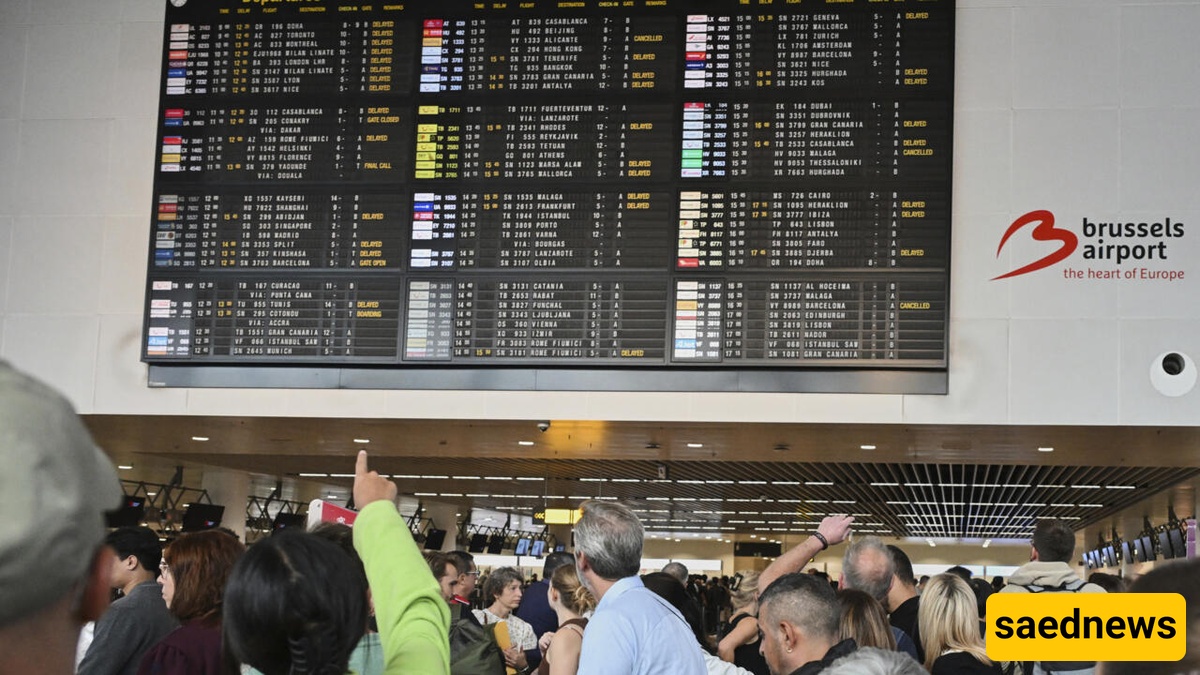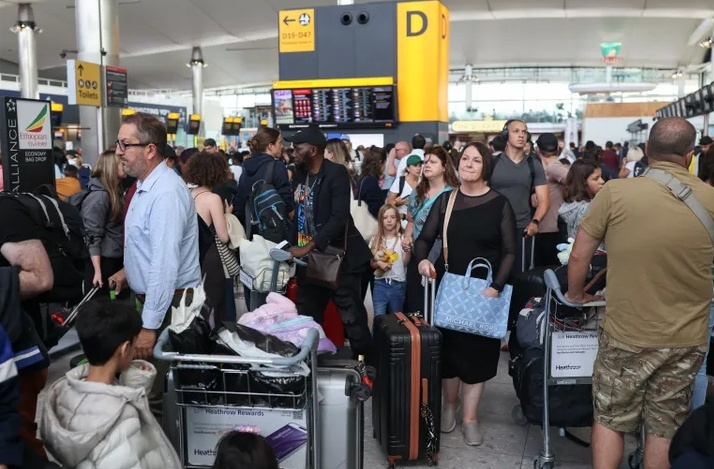SAEDNEWS: A cyberattack on check-in and boarding systems caused major delays at Heathrow, Brussels, and Berlin airports, leaving travelers scrambling and raising questions about airport cybersecurity.

Travelers across Europe faced unexpected delays this weekend as a cyberattack targeted check-in and boarding systems at some of the continent’s busiest airports, including London’s Heathrow, Brussels, and Berlin. The attack forced operators to shut down automated systems, leaving staff to revert to manual check-in procedures amid increasing frustration and confusion.

Heathrow Airport, the UK’s largest and a major international hub, confirmed that Collins Aerospace, the software provider handling check-in and boarding systems for several airlines, “is experiencing a technical issue that may cause delays for departing passengers.” The disruption occurred on Saturday, impacting a significant volume of flights and forcing passengers to double-check flight information with their airlines before traveling.
Collins Aerospace, a US-based aerospace and defense company owned by RTX Corporation, acknowledged the “cyber-related disruption” affecting select airports. While the firm did not disclose the full scope, it stated that the issue was limited to electronic check-in and baggage drop operations, which could be temporarily mitigated through manual processing.
Several European airports confirmed the effects of the cyberattack:
London Heathrow: Automated check-in and boarding halted, causing long lines and delays.
Brussels Airport: Manual check-ins caused significant flight disruptions; the attack reportedly started Friday night.
Berlin Airport: Online systems went offline; passengers faced longer waiting times.
Meanwhile, some major hubs were unaffected: Frankfurt, Zurich, and the Paris-area airports Charles de Gaulle, Orly, and Le Bourget reported normal operations.
The disruption has highlighted how heavily modern airports rely on automated systems, with manual processing proving labor-intensive and slower, leading to cascading delays across connecting flights.
Travelers reported confusion and frustration as queues for manual check-ins stretched across terminals. Social media posts showed long lines at counters, with passengers scrambling to confirm flights and baggage arrangements.
Experts note that cyberattacks on airport systems can have broad consequences, affecting airline schedules, crew assignments, and passenger safety protocols. While there have been no reports of data theft, the incident raises serious concerns about airport cybersecurity and the potential for more damaging attacks in the future.
No group, individual, or state has claimed responsibility for the attack. While authorities are investigating, a motive has yet to be confirmed. Cybersecurity experts emphasize that attacks on airport operations can be politically motivated, financially driven, or intended to sow chaos and disrupt travel.
The aviation industry remains highly attractive to hackers due to the concentration of critical infrastructure, sensitive personal information, and the operational impact of disruptions. This attack underscores the need for robust cybersecurity measures and emergency protocols to ensure passenger safety and continuity of operations.
In a statement, Collins Aerospace reassured passengers and airlines that they are “working to resolve the problem as quickly as possible” and that manual check-in operations could reduce the immediate impact. RTX Corporation, the parent company, described the incident as a “cyber-related disruption” but avoided specifying whether any sensitive passenger data had been compromised.
The company’s response highlights the growing challenge for global tech providers who maintain critical infrastructure across multiple countries, emphasizing the need for rapid incident response and transparent communication with affected stakeholders.
The incident demonstrates the vulnerabilities of interconnected airport systems, where a single point of failure can ripple across multiple countries and hubs. As Europe continues to recover from pandemic-era disruptions and rising passenger numbers, cybersecurity preparedness has become as essential as physical infrastructure.
Experts suggest increased investment in backup systems, employee training, and threat monitoring to prevent future incidents. The attack also serves as a reminder that even large, well-resourced airports are not immune to digital threats.
For travelers affected by the disruption:
Check Flight Status: Confirm updates directly with airlines before leaving for the airport.
Allow Extra Time: Expect longer waiting periods at check-in and boarding.
Stay Informed: Monitor airport social media accounts for live updates.
Plan for Contingencies: Consider alternative flights or routes if delays persist.

